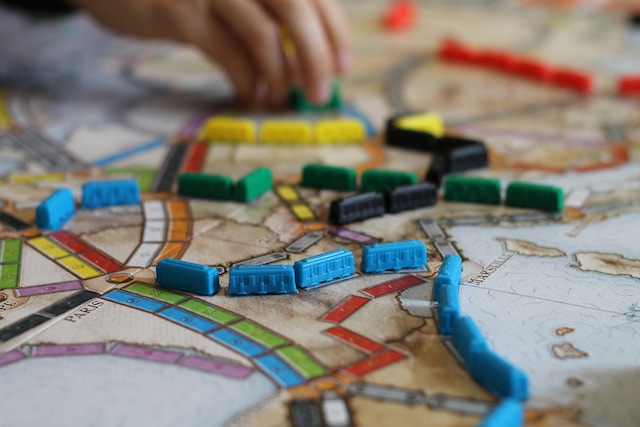Games have become an increasingly important element of pedagogy in schools and colleges, as well as at home. They range from purposively designed educational tools to edutainment to ‘traditional’ board games that can be played face-to-face.
Despite the growing popularity of computer games, it is possible to engage students in simulation and role-play activities without resorting to technological ‘fixes.’ For example, Participology is a non-digital game that can be used to develop empathy and promote a richer understanding of how different groups contribute to our world.
Improves Social Skills
Interactive board games are an excellent way to teach kids social skills. They help children develop listening and perspective-taking skills, practice social cues, learn turn-taking, share ideas, and negotiate if necessary.
These games can also help kids learn to deal with losing. For example, games like Candyland or Chutes and Ladders encourage kids to be flexible because their luck can quickly change.
Improves Decision-Making Skills
One of the essential skills that children can develop with interactive board games is decision-making. This can include deciding which of two pictures to choose, for example.
This can be an essential skill for your child to develop as they age and will help them throughout their life.
Whether playing a board game or on their phone, interactive games will help them develop their decision-making skills in a fun way. This will benefit them when they must make crucial decisions or take risks later in life.
Improves Teamwork Skills
Students can collaborate on a common objective by playing interactive board games. They develop teamwork skills that they can apply to various situations.
Students also learn to accept losses gracefully, an important life skill. They also get practice using communication to solve conflicts and avoid them in the future.
Improves Communication Skills
Interactive board games help improve students’ communication skills, which are vital for learning and development. They also provide a new learning environment and remove students from the typical classroom routine.
A study with children with autism showed that a board game intervention increased engagement and generalization of learned behaviors. In addition, participants were more likely to initiate and relinquish their turns.
Improves Problem-Solving Skills
Interactive board games offer a great way to improve problem-solving skills. By asking questions that force players to consider the long-term effects of their decisions, they can practice analyzing and predicting the outcomes of their choices.
In addition, they can improve resilience through risk-taking and overcoming failure. These skills can be applied to real-life situations and are essential for children to learn at a young age.
Improves Creativity
Interactive board games can be used in a classroom setting, providing students with opportunities to learn in fun and engaging ways. They are also great for boosting creativity and improving problem-solving skills.
Board games are also great for bonding with kids, family, or friends. They can be a great ice-breaker, and they are sure to make everyone smile!
Improves Concentration
Some interactive games require a lot of concentration, such as memorizing specific patterns or doing quick math in your head. This helps train your mind and improves mental agility.
Interactive board games also allow people to socialize and connect in a fun, stress-free environment. This type of play is especially beneficial for shy children and adults feeling isolated or lacking confidence.
Improves Memory
Whether you play board games for fun or to improve your cognitive skills, they are a great way to stimulate the brain areas responsible for memory formation and complex thought processes.
Some games, such as Scrabble and crossword puzzles, can enhance memory retention and recall. They also increase attention, problem-solving, and logical thinking skills.
